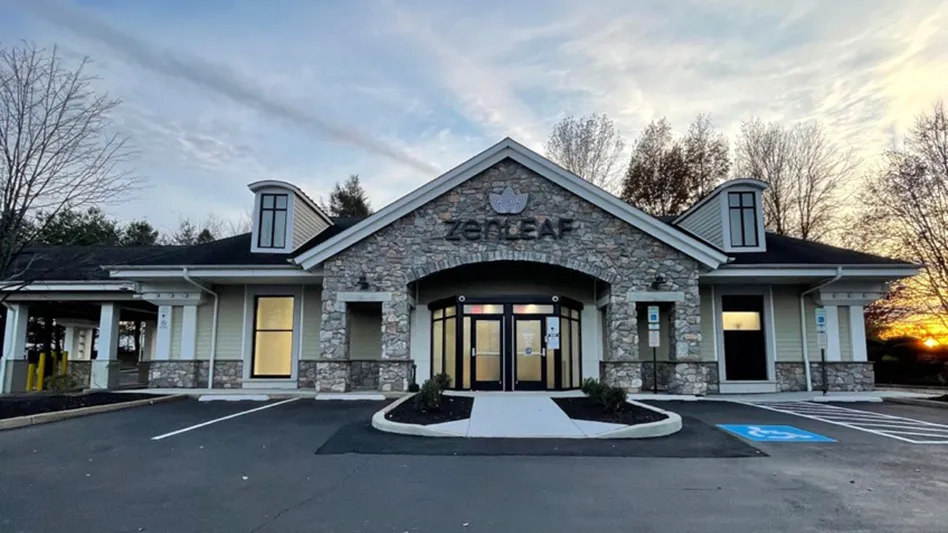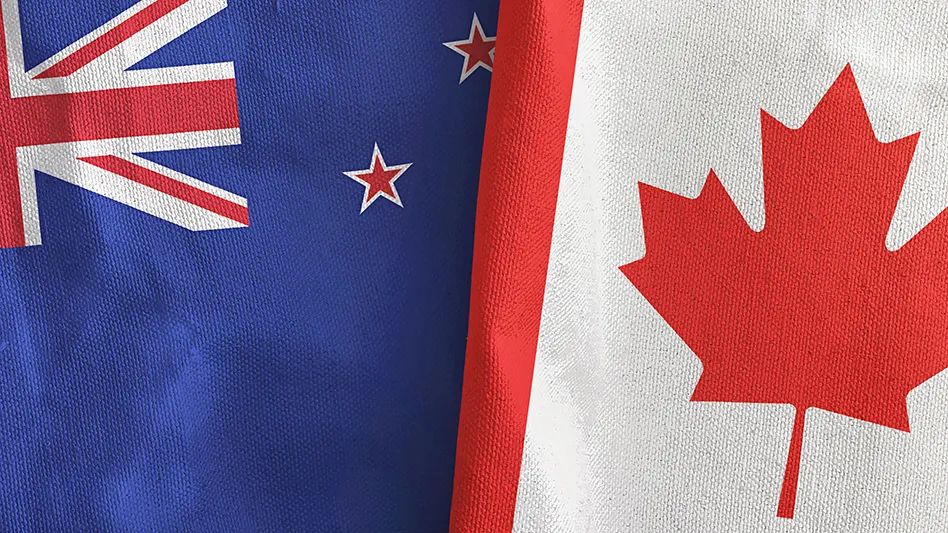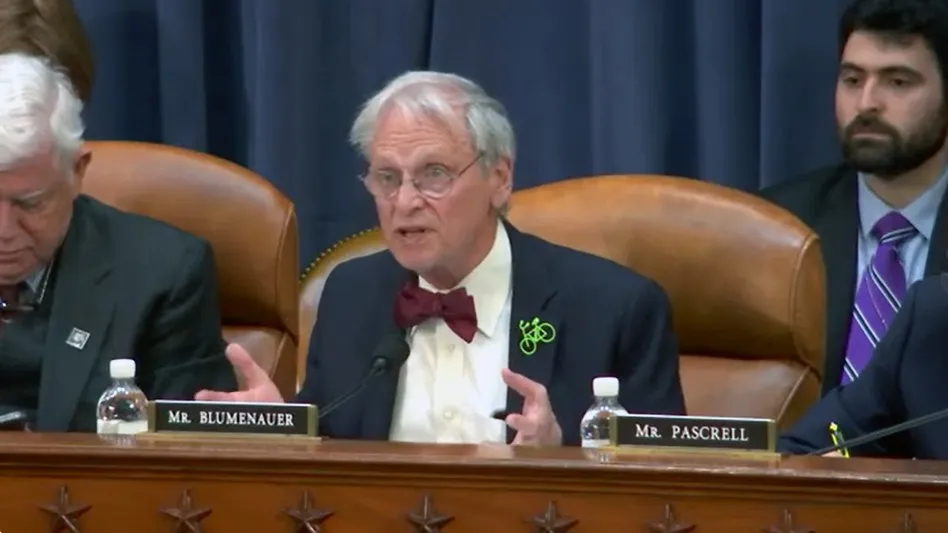
Adobe Stock
The border-town effect has started to reverse course in Illinois.
Of the $120.5 million in cannabis sales recorded by Illinois’ licensed adult-use retailers in February 2023, nearly $31 million in sales were attributed to out-of-state residents, according to the state’s Department of Financial and Professional Regulation (IDFPR). That’s roughly 25.5% of overall sales coming from customers who travelled across state lines, the lowest percentage since early 2020, when Illinois launched its commercial retail market.
By comparison, out-of-state residents contributed to 31% of Illinois’ adult-use cannabis sales in 2022 and 31.6% in 2021. A 5% decrease in out-of-state traffic, as the state experienced last month, is the equivalent of roughly $75 million in annual sales for Illinois.
This could be just the beginning of the state’s fading appeal to traveling cannabis consumers.
Bordered by Indiana, Iowa, Kentucky, Missouri and Wisconsin—five states without adult-use legalization throughout the past three years—Illinois dispensaries have enjoyed a heavy presence of cannabis tourism as an early legalization mover in the Midwest.
So, what’s causing Illinois’ recent dip in out-of-state resident sales?
Missouri, which shares more than 350 miles of real estate along the Mississippi River with Illinois, launched adult-use sales Feb. 3, just three short months after Missouri voters approved Amendment 3 on the statewide ballot.
A state of roughly 6.2 million people, Missouri cannabis retailers sold $102.9 million of cannabis, including $71.7 million to adult-use customers, in a shortened February, according to the state’s Department of Health and Senior Services (DHSS).
That represents one of the most successful commercial sales launches in the industry in terms of sheer sales volume. By contrast, Illinois, a state with roughly double the population of Missouri, recorded $39.2 million in adult-use sales during its first month of a program rollout. In Michigan, a state of 10 million people, it took 15 months to surpass the $70 million monthly sales benchmark for adult-use cannabis.
When Missourians gave the thumbs up to adult-use legalization in November 2022, John Mueller, CEO of multistate operator Greenlight, one of the largest legacy medical operators in the state, told Cannabis Business Times that he anticipated the legal adult-use market to be a 10-figure state industry that will provide north of $50 million in state revenue from a 6% cannabis excise tax.
RELATED: Missouri Voters Say ‘Yes’ to Adult-Use Cannabis Legalization
“Missouri is poised to become a tentpole for the industry in the Midwest, and we believe Missouri will be an $800 million to $1 billion market that will add over 5,000 new jobs in Missouri and roughly $50 [million] to $80 million in new tax revenue for the state,” he said.
While Mueller based his prediction on what’s unfolded in other states that have transitioned to adult-use markets, early numbers now back his foresight: Should Missouri continue to crack the $100-million mark in monthly cannabis sales—as it did in February—it’ll eclipse the $1 billion benchmark in 2023.
Much of that sales volume is dependent upon Missouri’s most populated cities—Kansas City and St. Louis—which accounted for 44 of the state’s 213 licensed dispensaries as of March 2, according to DHSS. St. Louis has a metro population of roughly 2.8 million people and is the largest city on the state line with Illinois.
Just on the other side of the of the Mississippi River is a pair of Beyond/Hello dispensaries—owned by multistate operator Jushi—in the village of Sauget, Ill., which had a population of 141 people at the 2022 census. But even before cannabis arrived, Sauget attracted Missourians to travel across the river for a nightlife district of 24-hour bars, clubs and off-track betting.
Roughly 50% of Beyond/Hello’s retail traffic in Sauget comes from out-of-state residents, Jushi Chief Strategy Director Trent Woloveck told CBT in the days leading up to the November 2022 election, when neighboring Missouri passed its adult-use ballot initiative.
The region surrounding Sauget is considered the second largest urban area of Illinois, and St. Clair County, where the village is located, has more than 250,000 residents, according to the U.S. Census Bureau.
“I will say it wasn’t an accident that we picked Sauget, Ill., as a location that we wanted to apply for a license,” said Woloveck, who formerly served as president of TGS National Holdings, an affiliate of The Green Solution (TGS). Eight years ago, TGS won two of Illinois’ first 55 medical dispensary licenses, including one in Sauget. In 2020, Jushi acquired the TGS licenses and later opened a second dispensary in the village.
“We didn’t know when adult-use was going to happen in Illinois,” Woloveck said. “But we definitely read the writing back in 2014, 2015 of the surrounding states being extremely red, and Illinois being a pretty blue state. You know, way back when, if you said ‘cannabis,’ or anything along those lines to a Republican, they thought you were the devil.”
During the third year of its commercial adult-use program, Illinois licensed retailers sold more than $1.5 billion in adult-use cannabis in 2022, a 12.6% increase over 2021, according to IDFPR.
Specifically in the six northernmost Illinois counties that border Wisconsin—Jo Daviess, Stephenson, Winnebago, Boone, McHenry and Lake—50.6% of licensed dispensary sales were to out-of-state residents in 2022, representing roughly $121 million, according to a report released earlier this month by the Wisconsin Legislative Fiscal Bureau.
While Illinois’ adult-use cannabis sales were up 7.4% in January and February compared to that two-month timeframe last year, the question remains as to how much of an impact Missouri’s developing adult-use program will have on not only Illinois’ cannabis tourism appeal, but also on the future of reform among its Midwest neighbors, like Wisconsin.
While many legacy markets experienced shrinking retail sales in 2022, Woloveck said he remains bullish on opportunities ahead in Illinois. He also said he’s always in favor of more states legalizing cannabis for the good of the industry as a whole, even if that means a more competitive landscape.
Specifically for Missouri, Woloveck predicted that there’d be a 12-plus-month ramp-up as the state market transitions from medical to adult-use cannabis.
“From a pricing perspective, convenience, experience, I still think we’ll be more than OK from a competitive standpoint in Sauget versus the Missouri adult-use stores,” he said. In addition to Sauget, Jushi’s retail footprint in Illinois includes dispensaries in Normal and Bloomington, which cater more to patients and residential customers in the central part of the state.
But the strategic move for many existing medical operators in Missouri was to look east across the Mississippi River at how adult-use dispensaries like Beyond/Hello were conducting business, and how many dollars were crossing state lines, Mueller said in the leadup to Amendment 3’s passage.
“I think our tax rate is going be significantly less [than Illinois],” he said. “So, I don’t see people crossing the [state] border ever again, not that they should be to begin with, technically.”
Latest from Cannabis Business Times
- Verano Opens MÜV Haines City, Company’s 75th Florida Dispensary
- Ascend Wellness Holdings Reports $142.4M Net Revenue for Q1 2024
- Trulieve Reports $298M in Revenue for 1st Quarter 2024
- SNDL Reports 1st Quarter 2024 Financial, Operational Results
- Leading Cannabis Brand STIIIZY Expands Retail Presence With Fresno Location Opening Saturday, May 11
- The Cannabist Co. Reports 1st Quarter 2024 Results
- Green Thumb Reports $276M Revenue for 1st Quarter 2024
- Colorado Legislature Gives Final Approval to Measure Aimed at Streamlining Marijuana Regulations





